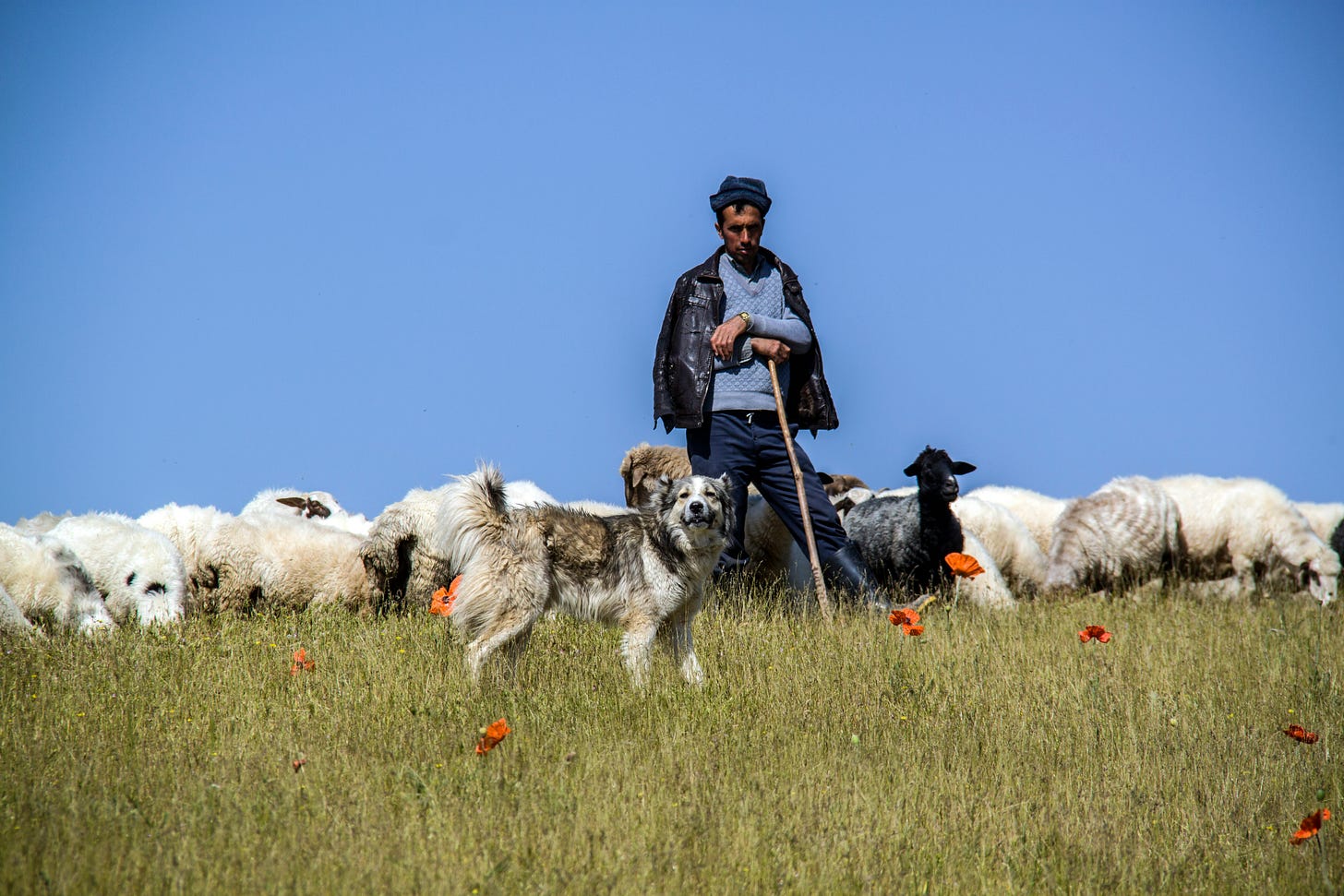They Need No Longer Fear and Tremble
Homily for Sunday, July 21, 2024: the Sixteenth Sunday of Ordinary Time
His heart was moved with pity for them, for they were like sheep without a shepherd.
That passage had a lot of resonance this past week as I reflected on these readings. As, this past Monday, we celebrated the ordination and installation of our new bishop – after just over a year of being shepherdless ourselves.
Our Church has its shepherd. But the community, the society, the culture we live in – not just here in the least religious state in the country, but throughout our nation – we see sheep in need of a shepherd.

This week saw our national political season kick into high gear, as our two major parties – each in their own way – make their determinations of who the rest of us get to choose as our national leaders in November.
This for me resonated more with the first reading: Woe to the shepherds who mislead and scatter the flock of my pasture, says the Lord.
Our politics right now are politics of the scattered flocks. Our politicians work at division, it seems, trusting more in opposition to the other guy than support of their own guy.
And in some sense it has always been thus. For as long as I’ve been following politics, it seems people have always complained about the negativity in campaign ads. And for as long as I’ve followed politics, the voters have always shown that, much as they complain about it, the negative ads work. And so, year after year, our political parties double down on what works. Fear the Other. Divide and scatter the flocks.
It should not have come as a surprise to anyone, then, our politics has turned to violence. It should not surprise us that it’s all likely to get worse before it gets better. It is the fruit of a political ideology based in fear, in division, in opposition to the other. Our culture reaps what it sows.
Saint Paul reminds us that this is not the way of Christ. He came and preached peace to you who were far off and peace to those who were near. Jesus came to unite us, not in fear against a common enemy, but to unite us in the Love of God. He came to break down the dividing wall of enmity; to put enmity to death.
As Christians we need to center ourselves in that Peace of Christ. We need to look constantly to that Good Shepherd, rather than follow the misleading and scattering shepherds of worldly ideologies.
As citizens of this country we do have the right and the duty to participate in the social and political system. But we also have the obligation to keep a clear perspective.
No politician, no political party, no political ideology will ever be fully in alignment with our Catholic faith. Both sides have some good ideas, both sides have a lot of bad ideas. Both sides espouse moral and immoral values. Our involvement in the political system means compromise, and each of us has to discern what moral compromises we can and can’t go along with. But we have that obligation, to recognize and to understand where those compromises are being made.
And hopefully we don’t just shrug off those compromises, saying to ourselves, politics is politics and that’s the way it is. Notice in the Gospel what Jesus does when he encounters the sheep without a shepherd: He began to teach them many things.
In the first reading God pledges punishment against the bad shepherds, and then promises to appoint shepherds for them who will shepherd them so that they need no longer fear and tremble.
The Church teaches us that our civic duty should be in service to the Common Good – to work toward the good of all people, to pay special attention to the needs of the poor, the weak, the helpless – to promote a society that helps those who can’t help themselves.
In a world that prefers to look first and foremost after the needs and wants of the affluent and powerful, Christ calls us to be the conscience of our politics, of our society, and of our world.

